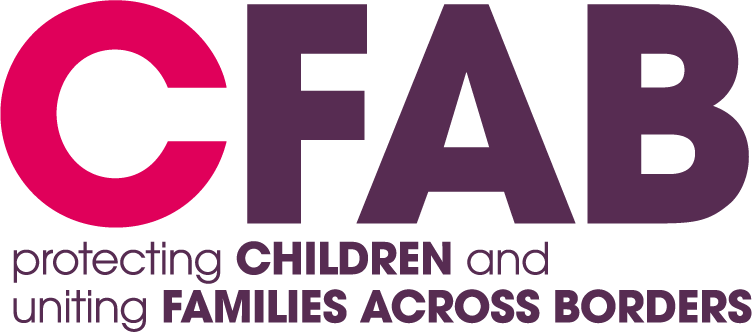This blog post is from Carolyn Housman, CEO of CFAB.
In 2019, nearly thirty-five per cent of all children born in England and Wales had at least one parent born outside the UK. When a child can sadly no longer be looked after by their parents, the first and best choice of alternative care should be with their family or those with close family connection if it is safe and appropriate. We believe there could be as many as 18,000 Looked After Children in England and Wales who have family members in another country abroad who could be explored as options for their care.
However, substantial improvements need to be made to this system to ensure that children have the best chance of living safely and securely with their families, regardless of the country. That is why we are launching our new campaign, Safe, Secure and Thriving.
What are these improvements? Firstly, no statutory organisations analyse or report on the number of Looked After Children who have been placed overseas. Nor is there any evidence or research on to which countries they go, what court orders are most commonly used, the outcomes of these placements, and the long-term impact on the children involved.
That's why the first ask of our campaign is that the Department for Education publish data on the number of children placed overseas from the UK and to include outcomes for overseas kinship placements, so meaningful research and analyses can take place.
We've also been concerned by the discrepancy in the level of post-placement support offered to those children who have been placed overseas, with often minimal support and training provided to prospective carers. When a child is placed across a border, many specific risks come into play, from the child's psychological needs to culture shock to their educational needs not being met in the new country. To address this, we are working with local authorities and the Department for Education; and developing practical resources to ensure support for overseas kinship placements are on par with what a child would experience in England.
Finally, we know that sadly placements do break down; this is why we must improve our understanding of the outcomes in cross-border kinship care and improve the support for the families involved. However, sometimes breakdowns are unavoidable. If a placement breaks down in the UK, a safety net kicks in to support the child. This may well not be the case if the child has been placed overseas, leaving them at risk of exploitation, neglect or faced with making a dangerous journey back to the UK, where the local authority may refuse responsibility for them. That's why each child must have a contingency plan in place, including specific provisions to guarantee their safety if their placement breaks down before they are placed overseas.
Over the coming year, my team will be working on a whole schedule of exciting activity as part of the Safe, Secure and Thriving campaign, a campaign of targeted advocacy on behalf of some of the most vulnerable children in the UK. We will be working closely with MPs, providing briefings to government departments and ministers, engaging with local authorities at all levels, and designing research and high-quality resources and products for our statutory and professional partners. To find out more, please visit our website here.


